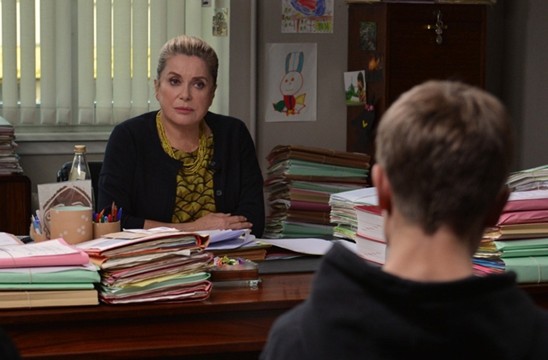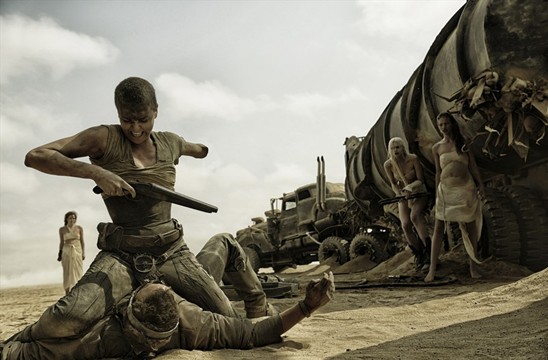
This year, Cannes started for me at Gatwick where I bumped into Desiree Akhavan, writer/director and star of Appropriate Behaviour, who was heading to the festival for the first time to head up the Queer Palm jury. We wished her luck in her duties.
Cannes social-realist opener Standing Tall (La Tete Haute) was fittingly the first film on my agenda. There was much debate on the reason why this film in particular was chosen. Were we seeing a new post-Charlie Hebdo realism at the festival and why was this film, directed by a relatively unknown Emmanuelle Bercot (who also plays the lead in Mawenn’s Mon Roi) not selected for competition? Apparently, Bercot openly challenged festival director Thierry Fermaux with this question at the films press conference. Whatever the answers, the films strength lies in the performances from French doyenne Catherine Deneuve who plays a juvenile court judge charged with trying to support a volatile youth who has come into her care. The juvenile is played by newcomer Rod Paradot who gives a raw performance as the scarred boy-child. With echoes of the Dardenne’s canon and last years Starred Up – the film, if a little schematic at times, will play best to audiences who love that kind of cinema. It’s ultimately positive and refreshing message is that the social system can work and people can be reformed if they are given the chance to make it work.

Our Little Sister, the new film by Hirokazu Kore-eda (Like Father, Like Son and Nobody Knows) was programmed early on in the Competition. An enchanting family comedy/drama centreing on the lives of three grown up sisters, all very different, who on the death of their father decide to invite their teenage half-sister to live with them. The film is interwoven with the annual rituals of cherry blossom, the ritual of making plum wine and eating white bait fish. As with all Kore-eda’s cinema, it is the small details of daily life that count: the family mealtimes, sister gossip and chats about boyfriends, jobs or dreams that in the hands of a more bombastic filmmaker would have translated into mawkish melodrama. The film looks dazzling too: Kore-edas DP Mikiya Takimoto (who also shot his previous film Like Father, Like Son) frames the story and the rambling house and garden that the sisters live in with Ozu inspired elegance and unstated beauty.

Mad Max: Fury Road was a guilty pleasure that could not be ignored. George Millers feminist re-working of the uber-macho post-apocalyptic Mad Max films is inspired. Less on dialogue more on classic action, Tom Hardy (Mad Max), Charlize Theron (Imperator Furiosa – who wouldn’t die for a name like that?) and Nicolas Hoult (Nux) take the film (and the action movie genre) forward in leaps and bounds. This is badass cinema, full throttle, where pumped-up men need to drink mothers milk to survive and Furiosa’s quest to reach Arcadia finds grannies on motorbikes, armed with guns and guts. A thrilling, kinetic smart action movie that has kept its roots in its comic book origin and does not take itself seriously at all.

Philippe Garrel (founder of the infamous 68 Zanzibar group and former lover of Nico) is a filmmaker whose body of work consistently remains interesting. He often shoots his films in black and white and since the mid-2000’s has cast his son Louis Garrel in lead roles. His new (black and white) drama In The Shadow of Women kicked off Directors’ Fortnight. The film plays as a relationship drama, set in Paris about a bourgeois married couple who both have affairs but it’s the man who decides he has the licence to stray and not his wife: cue the conflict, existential discussion on the nature of love and marriage and commitment. I loved it. Co-written with Caroline Deruas-Garre (Garrel’s real-life partner and writer/actress in her own right), the films biographical parallels are intriguingly imagined. Garrel is not everybody’s cup of tea and his films are rarely released in the UK (last years Jealousie had a small release with StudioCanal) but his post-nouvelle vague films are pleasingly complex, funny and full of humanity.

